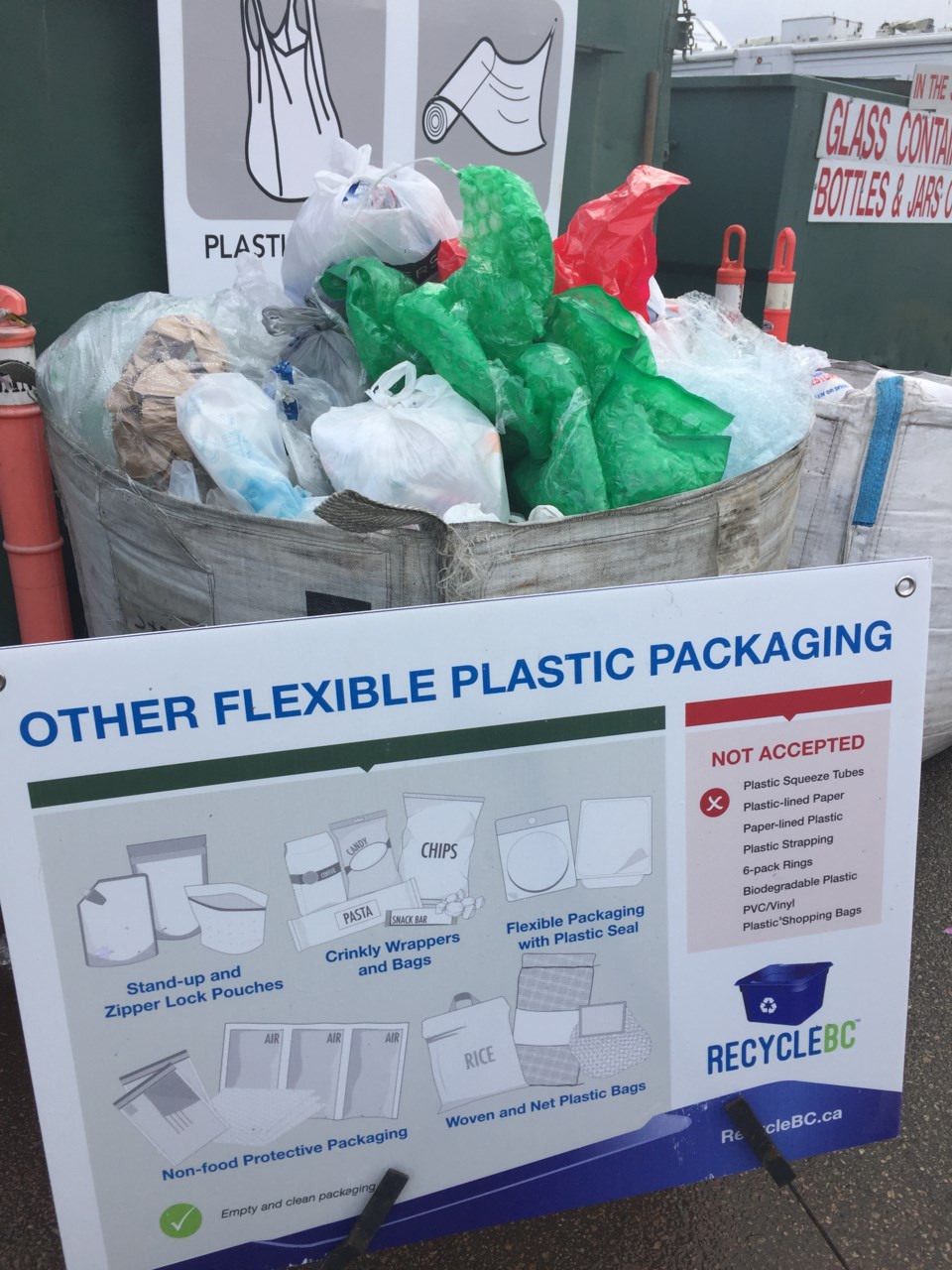If you’ve been bummed about having to toss candy wrappers, cookie and chip bags and bubble wrap into the garbage, you’re going to be happy to hear about a new program being offered at the New Westminster Recycling Depot.
As of Jan. 2, the recycling depot is accepting “other flexible plastic packaging”, such as zipper-lock pouches that hold items such as grated cheese, woven bags for products like onions and oranges, plastic pouches for prepared frozen foods like perogies, fruits and vegetables, plastic bags for deli meat, wrappers for cheese slices, and pet food pouches. Crinkly wrappers and bags, zipper lock bags, net plastic bags, and non-food protective packaging are among the items now being accepted at the depot.
“Recycle BC rolled this out to a bunch of pilot municipalities earlier in 2018 and now the City of New West is onboard,” said Kristian Davis, supervisor of the city’s solid waste and recycling branch. “If you are a depot collector working under Recycle BC, now all depot collectors are required to provide collection of other flexible plastic packaging materials at their depots. Things like candy wrappers, a lot of those zipper lock pouches – the harder film type plastics that were too tough for you to poke your thumb through, that’s the way I kind of describe them.”
A full list of flexible plastic packaging items now being accepted can be found at RecycleBC.ca/FlexiblePackaging.
While soft plastic bags will continue to go in their regular bin, the newly accepted materials will go into canvas bags located in front of the film plastic container.
“Eventually we will have a separate container for this material,” Davis said. “We are just getting a feel for the volume right now and see how much it is going to bring in there.”
Early indications are people are interested in the new program, as some residents dropped off items in anticipation of the Jan. 2 rollout of the program and others were quick to bring items after the launch.
“It is an exciting new program. It is offering a solution for all those other materials,” Davis said. “I tell folks: because we offer this service for residents to drop off items at the depot, it doesn’t necessarily mean that it cannot go into your garbage bin. I’d rather see something end up in the garbage bin than contaminate our recycling. We have a lot of issues with contamination in the recycling bins, especially like plastic bags and soft plastics.”
Contamination of recyclables is an issue because trucks can be fined for taking contaminated materials to recycling facilities.
“It has to go directly to the depot,” Davis stressed about the flexible plastic packaging. “It has to be separated from other recycling materials because of the way it gets caught up in processing equipment at recycling facilities.”
Lyndsey Chauhan, Recycle BC’s director of marketing communications, said a pilot program, which was launched in June 2018 at 121 depots in 89 communities and 50 London Drugs stores, continues to do well and is now being rolled out to all Recycle BC depots.
And just what will become of the flexible plastic packaging that’s recycled through the program?
“In the pilot phase, other flexible plastic packaging collected at depots will be used for research and development. This material is made up of multiple layers of different types of plastics which makes it difficult to recycle,” Chauhan said in an email to the Record. “We are working with Merlin Plastics in Delta, B.C. to run tests on the material to inform development of a viable, stable commercial process for the recycling of the packaging. During this research and development period the portion of the material collected that cannot be recycled will be used to produce an engineered fuel to replace non-renewable resources, such as coal. Once the commercial process is developed, the intent is for the majority of the material to be recycled.”



